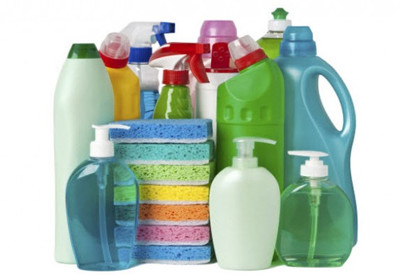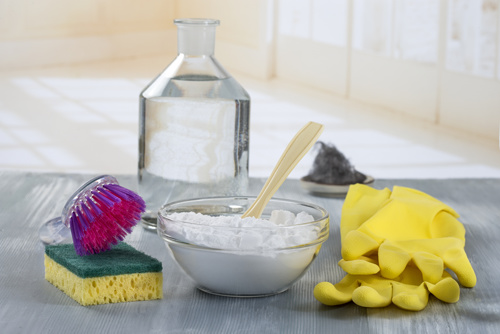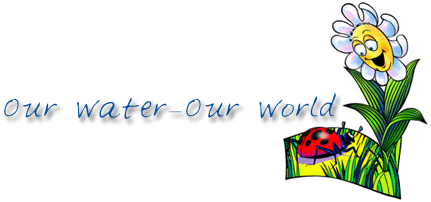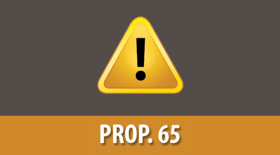Pesticides Use
Effects of Pesticide Use to Humans
Many household products contain pesticidal or toxic ingredients that can be harmful to humans, animals, or the environment. Always read the label to learn how to use the product safely and effectively.
What is a Pesticide?
A pesticide is a chemical used to prevent, destroy or repel pests. Here are some examples of pesticides we use in our homes:
- Cockroach sprays and baits
- Mosquito sprays
- Flea and Tick Sprays, powders, and pet collars
- Rat Poisons
But did you know that these common products are also considered pesticides?
- Cleaners used to disinfect the kitchen floor
- Cleaning products used to clean mildew from the bathroom
- Household plant sprays
- Lawn and Garden Products used to kill insects and weeds
- Some swimming pool chemicals

Additional consumer information for pesticides can be found on the link http://www.epa.gov/safepestcontrol.
Effects of Pesticide Use on Water Quality
Inappropriate pesticide use, pyretheroid pesticides, in particular, has been found to be a major cause for toxicity in local creeks and streams county-wide. Over the counter sales of pyretheroid-containing pesticides (primarily attributable to residential uses) have gradually increased over the last five years. The City’s Integrated Pest Management Program (IPM) provides a comprehensive plan for pest management, which adhere to storm water regulations while reducing pesticide use and minimizing the risk of pesticide leaching or run off into storm drains or environmentally sensitive areas. Biological, cultural, physical, mechanical, educational and chemical methods are used in site specific combinations to solve pest problems with the least environmental impact. Under the City’s IPM policy, chemical controls are used only as a last resort to, and in the least toxic formulation that is effective against the pest.
Pesticide use Regulation
The Regional water Quality Control Board mandates that cities prevent the impairment of urban streams by pesticide-related toxicity and implement a pesticide toxicity control program that addresses their own and others’ use of pesticides within their jurisdiction that pose a threat to water quality and that have the potential to enter the municipal conveyance system. The urban-use pesticides of concern to water quality include:
- Diamides (chlorantraniliprole and cyantraniliprole)
- Diuron
- Fipronil
- Indoxacarb
- Organophosphorous insecticides (chlorpyrifos, diazinon, and malathion)
- Pyretheroids (metofluthrin, bifenthrin, cyfluthrin, beta-cyfluthrin, cypermetherin, deltamethrin, esfenvalerate, lambda-cyhalothrin and permetherin)
- Carbamates (carbyl and aldicarb)
The following pest management products are completely banned from use in Contra Costa:
- PESTICIDES LINKED TO CANCER (US EPA CLASS A, B, AND C CARCINOGENS AND CHEMICALS KNOWN TO THE STATE OF CALIFORNIA TO CAUSE CANCER UNDER PROPOSITION 65).
- PESTICIDES THAT CAUSE BIRTH DEFECTS, REPRODUCTIVE, OR DEVELOPMENTAL HARM (IDENTIFIED BY THE US EPS OR KNOWN TO THE STATE OF CALIFORNIA UNDER PROPOSITION 65 AS REPRODUCTIVE OR DEVELOPMENT TOXINS).
- PESTICIDES CLASSIFIED AS TOXICITY CATEGORY I AND II PESTICIDE PRODUCTS BY THE US EPA, CARBONATE, AND ORGANOPHOSPHATE PESTICIDES.
- FOGGERS, BOMPOB, FUMIGANTS, OR SPRAYS THAT CONTAIN PESTICIDES IDENTIFIED BY THE STATE OF CALIFORNIA AS POTENTIALLY HAZARDOUS TO HUMAN HEALTH (CFR 6198.5)
- PESTICIDES THAT INTERFERE WITH HUMAN HORMONES.
Pesticide-Free Housecleaning



Which bugs are wanted in your garden? How do you manage the ones you don't want?
Visit Our Water - Our World
Proposition 65

Click here for information on Prop 65


